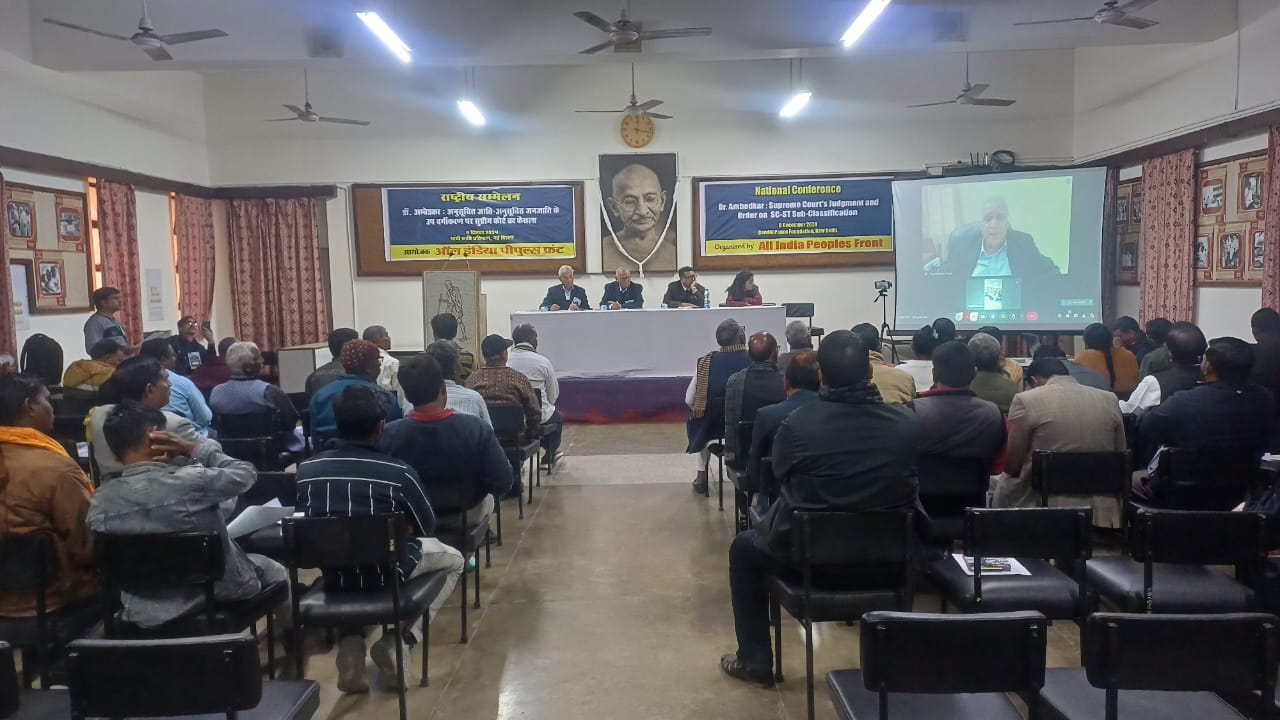*Defeating the attack on democratic rights and freedoms and working for repeal of all special laws including the Armed Forces (Special Powers) Act which restrict the democratic space guaranteed under the Indian Constitution and enable the State to abuse its monopoly of use of force.
*Defeating corporate takeover of agriculture; resisting corporatization of land, water and seed, forest and minerals; promotion of cooperatives and moving towards socialization of ownership and working of these basic resources.
*Defeating the corporate encroachment and appropriation of commons, particularly the forest and adivasi habitations and lands; protecting adivasi community rights and livelihoods; promoting community ownership and management of forest resources.
* Defeating the policy regime that facilitates the Corporate loot of mineral resources and spells devastation of Adivasi’ life ,livelihood and habitat.
* Defeating the WTO (World Trade Organisation/AoA (Agreement on Agriculture) paradigm on agriculture; striving for a peasant- centric alternative through South-South cooperation in agricultural production and trade.
*Alternative development policies which will not only repudiate the mainstream strategy of “globalizing growth” but also promote self-reliance; inter-personal, inter-class (in the sense of educationally and socially backward and advanced classes), and inter-regional equity; and conservation of environment. It will imply reorientation of direction and pattern of industrialization. It will mean a break from the present obsession with “globally competitive” industries and a shift in favour of employment –intensive technology based and mass consumption oriented industries.
* Ending the rapid commodification of health, education, food, and other essential goods; replacing the prevailing mercenary, discriminatory, unaffordable, and limited-access systems with a comprehensive, egalitarian, and affordable public provision system for health, education, food, and other necessities.
*Impose appropriate taxes on the wealth of the super-rich and allocate these funds to social security schemes. A national wages and incomes policy severely limiting the disparity across the sectors and classes.
*Ensuring the right to employment and a decent standard of living through legal measures and appropriate economic policy initiatives.
*Social groups historically affected by identity-based discrimination — such as Scheduled Castes, Scheduled Tribes, Extremely Backward Classes, minorities, and women — must be ensured adequate representation in education, the judiciary, media, government employment, and across all administrative and private sectors. Additionally, a separate column for tribal religions should be reinstated in the national census, as was the norm prior to 1961, to recognize and respect their distinct cultural and religious identities.
*Government policies should be formulated to preserve the socio-cultural, religious, and tribal identities of India’s diverse social groups, rather than imposing an urban-centric, bureaucratic model of homogenisation. Current policy frameworks, rooted in such logic, often ignore ecological balance, environmental sustainability, and cultural diversity, particularly reflected in housing-related policies. These policies are ill-suited to the living conditions of the Indian masses.
* A thoroughgoing electoral reform including introduction of proportional representation and elimination of the rampant influence of money and muscle power in order to cleanse and deepen the process of democratisation.
* AIPF firmly believes in the principal of Federalism enshrined in the Constitution.
* People’s control and supervision over the administrative machinery, particularly at the cutting-edge level.
* Fighting and defeating the communal and fascistic forces that are challenging the very Idea of India which is the product of a long struggle against colonialism and imperialism.
* Complete separation of religion, on the one hand, and the state and politics, on the other. Religion to be confined to private domain where it belongs.
* Support to struggles of sub-nationalities and borderline states for preserving their cultural and political identity as has historically emerged and support to their aspiration for fuller autonomy within the Indian Union.
*Strengthening the autonomy of the Indian financial system and protecting it from the fragility and rapacity of the global finance capital. Working for regional financial cooperation e.g. Regional Monetary Union/s.
* Decisive breaking away from the US strategic design and opposing US militarism, in particular, US-Israeli militarism in West Asia , and exposing and defeating US-Israel-sponsored Islamophobia.
* Fighting and defeating chauvinistic and jingoistic policies and stances towards the important neighbouring countries, China and Pakistan in particular, and striving for peace and cooperation in the Indian subcontinent, Asia and the whole world.
*Develop a new energy policy to reduce carbon emissions consistent with the reorientation of the strategic, agrarian and industrial policies; selective strategic cooperation with the West Asian and Central Asian oil and gas rich countries ; closer cooperation with the Shanghai Cooperation Organization.


